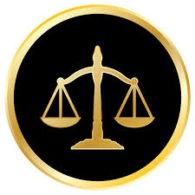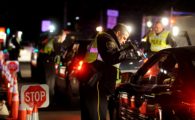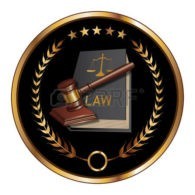The driving under the influence of drugs (DUI) criminal lawyer with 30 years defense expertise, David Pflaum aggressively fights for the rights of his clients.
Just because a person was arrested for a DUI does not mean that the person is guilty. The person has constitutional rights and remedies.
An experienced criminal lawyer makes a difference in the results of a DUI prosecution.

Get Out Of Jail. All people arrested for a first time allegation of driving under the influence of drugs in violation of Vehicle Code section 23152(a) are put in jail. Bail is set at $2500. Most people post bail right away and get out of jail. They are given a notice to appear in court at a future date.
If the accused remains in custody there are several ways attorney Pflaum helps get his or her released from jail as soon as possible.
The procedures to get a person out of custody depends on the circumstances of the alleged crime and the present status of the accused, i.e., ties to the community, employment, ownership of property, age, health, prior criminal record, military experience and character references.
Click on the following words to learn more: get out of jail asap.
DRIVING UNDER THE INFLUENCE OF DRUGS DEFENSE STRATEGY
Attorney Pflaum meets extensively with his client in order to learn the details surrounding the investigation, detention and arrest. It is also helpful to learn about the client’s status including but not limited to employment, ties to the community, professional licenses, education, training, military experience, and mental and physical health.
Mr. Pflaum also analyzes the criminal file presented by the prosecution including forensic evidence, the police investigation and reports, witness statements, 911 calls, and video recordings from police body cameras and patrol units in order to apply the best defense strategy.
The most common defenses that Mr. Pflaum may invoke to successfully defend his client for an accusation of driving under the influence of drugs include the following.
- No proof of driving
- Failure to identify the driver
- No legal impairment
- No warrant for a blood test
- Faulty chemical testing
- No criminal intent
- Insufficient evidence to prove the case
- No corroboration by an independent witness
- No witness identification of the accused
- Witness bias
- No proof beyond a reasonable doubt
- Violation of the right to remain silent
- Coerced confession
- Inconsistent police testimony
Other important areas of inquiry that Mr. Pflaum may utilize to defend the case include the following.
The Detention. One important way to defend an accusation of a DUI is to determine whether the police had a valid reason to detain you or pull over your car.
If the California Highway Patrol is involved, there should be a mobile video audio recording system (MVARS) of the driver operating his or her vehicle before he or she was pulled over.
If you were arrested by another law enforcement agency, most of them now have body cameras that may be helpful in proving whether the field sobriety tests were done correctly, and that the accused was not under the influence of alcohol.
The vehicle and body camera video recordings can be very helpful to challenge the reason why the police stopped your car, or prolonged the detention of you longer than was necessary, or the performance on the field sobriety tests.
If a judge agrees that the police had no valid reason to stop your car, or that you performed well on the field sobriety tests, the case may be dismissed.
Sobriety Checkpoint. If you were stopped at a sobriety checkpoint, there are procedures the police must follow in order to obey the law. If the police did not follow the procedures, a judge may dismiss the case.
Field Sobriety Tests. The results of the field sobriety tests can vary from person to person. Most experts agree that field sobriety tests are coordination tests that do not significantly evaluate a person for sobriety.
The police almost always claim that a person failed the field sobriety tests, but there are numerous ways to show that a person performed them just fine and the person was not under the influence.
Alcohol Tests. There are three separate tests available to law enforcement: 1) a preliminary alcohol screening (PAS) device; 2) a intoxilizer; 3) a blood test.
The PAS test requires consent, and that the PAS operator have training and calibration logs for the device.
The intoxilizer machine is located at the jail and requires certifications and that the officer observed the client continuously for 15 minutes prior to giving a breath sample and that the machine was tested prior to and after the person gave a breath sample.
A blood test requires the consent of the person who was arrested or a warrant. The results of the sample are not available for 2-3 weeks, and may be retested by an independent forensic toxicologist.
Driving Pattern. The manner in which a person was driving is an important factor. If a person was pulled over for a minor equipment violation, or some other minor infraction, there are jury instructions that will help you possibly win your case.
ALTERNATE STRATEGIES TO RESOLVE A DUI CASE
Statistics show that nearly 95% of driving under the influence cases are resolved prior to trial by way of a plea bargain.
Plea Bargains. A plea bargain is an agreement between the defense lawyer, his client, the judge and the prosecutor to eliminate or reduce the original criminal charges, avoid or minimize the amount of time in jail, and reduce the fines.
A client is under no obligation to accept a plea bargain offer, but nearly all criminal prosecutions begin with the plea bargaining process.
Defense Strengths. Good plea bargains come about because attorney Pflaum knows his client well, investigates the case, carefully reviews the police reports, the medical records, videos, photographs, tape recordings, 911 calls, forensic evidence, and witness interviews to develop the strengths of a case.
Prosecution Weaknesses. By the same process Mr. Pflaum looks for and develops weaknesses in the prosecutor’s case such as inconsistencies in witness statements, problems with the arrest or the investigation, discrepancies in the conduct of the investigating officers, missing or inconclusive evidence, videos that do not confirm the investigating officer’s account of the detention and arrest, and problems in the forensic evidence with the blood or breath results.
Effective Presentation. Attorney Pflaum then makes a persuasive presentation to the judge and prosecutor about the strengths of his client’s case, and weaknesses of the prosecution’s case, to achieve an excellent plea bargain offer.
If the plea bargain offer is accepted by the client and his defense attorney, the case then proceeds to sentencing either immediately or at a future court date.
If the plea bargain is not accepted, then the client and the defense attorney continue to aggressively defend the case as it heads towards a trial.
Jury Trial. Some cases, depending upon the client’s preference and the alleged evidence in the case, may proceed to jury trial.
Defenses at trial depend upon the evidence, witness statements, police officer testimony, expert witness testimony, blood test results, breath test results, admissions or statements made by the accused during the investigation, patrol car video tapes, and body worn cameras.
Attorney Pflaum has extensive experience at preparing cases for trial, presenting excellent opening statements and closing arguments, and winning.

THE RIGHT DUI LAWYER FOR JUSTICE
Mr. Pflaum understands the needs of his clients charged with a DUI. He has decades of dedication, experience and expertise making a difference for them.
(760) 806-4333
Vista – Escondido – Carlsbad – Fallbrook – Oceanside – Encinitas – Solana Beach – San Ysidro – Chula Vista – San Diego – Carmel Valley – Pacific Beach – Del Mar – San Marcos – El Cajon – La Costa – Leucadia – La Jolla – Mission Beach – Imperial Beach – North Park – Hillcrest – Rancho Santa Fe – Poway – North County – South Bay – Coronado – Miramar – Scripps Ranch – Rancho Bernardo – Ramona – Mission Hills – Bonita – Point Loma – Hillcrest – Valley Center – Bonsall – Spring Valley – La Mesa – Ocean Beach – Imperial Beach
COMMON ALCOHOL/DRUG DRIVING OFFENSES
Driving Under Influence of Alcohol or Drugs (DUI), Vehicle Code section 23152(a)/(b)
It is unlawful for any person who is under the influence of any alcoholic beverage or drug, or under the combined influence of any alcoholic beverage and drug, to drive a vehicle.
Driving Under Influence of Alcohol or Drugs Causing Injury, Vehicle Code section 23153(a)/(b)
It is unlawful for any person, while under the influence of any alcoholic beverage or drug, or under the combined influence of any alcoholic beverage and drug, to drive a vehicle and concurrently do any act forbidden by law, or neglect any duty imposed by law in driving the vehicle, which act or neglect proximately causes bodily injury to any person other than the driver.
Guilty Plea to Lesser Charge (Wet Reckless), Vehicle Code section 23103/23103.5
A reduced offense to a DUI charge is called a Wet Reckless. It is less serious than DUI, increases your chances of keeping your license, there is no minimum jail time requirement, the fines are smaller and if probation is granted is less than that of a DUI offense.
Reckless Driving, Vehicle Code section 23103
A person who drives a vehicle upon a highway in willful or wanton disregard for the safety of persons or property is guilty of reckless driving.
Vehicular Manslaughter While Intoxicated, Penal Code section 191.5 (a)/(b)
Vehicular manslaughter while intoxicated is the unlawful killing of a human being without malice aforethought, in the driving of a vehicle, where the driver was under the influence of alcohol or driving reckless, and the killing was the proximate result of the commission of an unlawful act, not amounting to a felony, and with or without gross negligence, or the proximate result of the commission of a lawful act that might produce death, in an unlawful manner, and with or without negligence.
Driving Under Influence of Alcohol Under 21, Vehicle Code section 23136
It is unlawful for a person under the age of 21 years who has a blood-alcohol concentration of 0.01 percent or greater as measured by a preliminary alcohol screening test or other chemical test, to drive a vehicle. Additional penalties are assigned than those of a DUI.
Driving Under Influence of Alcohol Under 21, Vehicle Code section 23140
It is unlawful for a person under the age of 21 years who has a blood-alcohol concentration of 0.05 percent or greater as measured by a preliminary alcohol screening test or other chemical test, to drive a vehicle. Additional penalties are assigned than those of a DUI.




